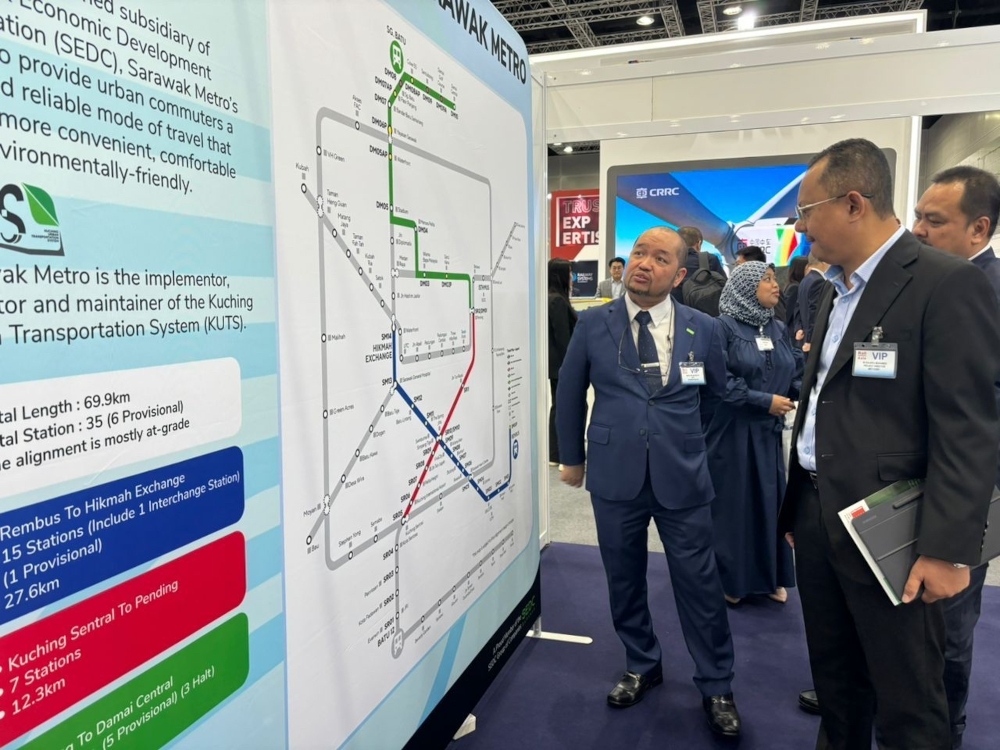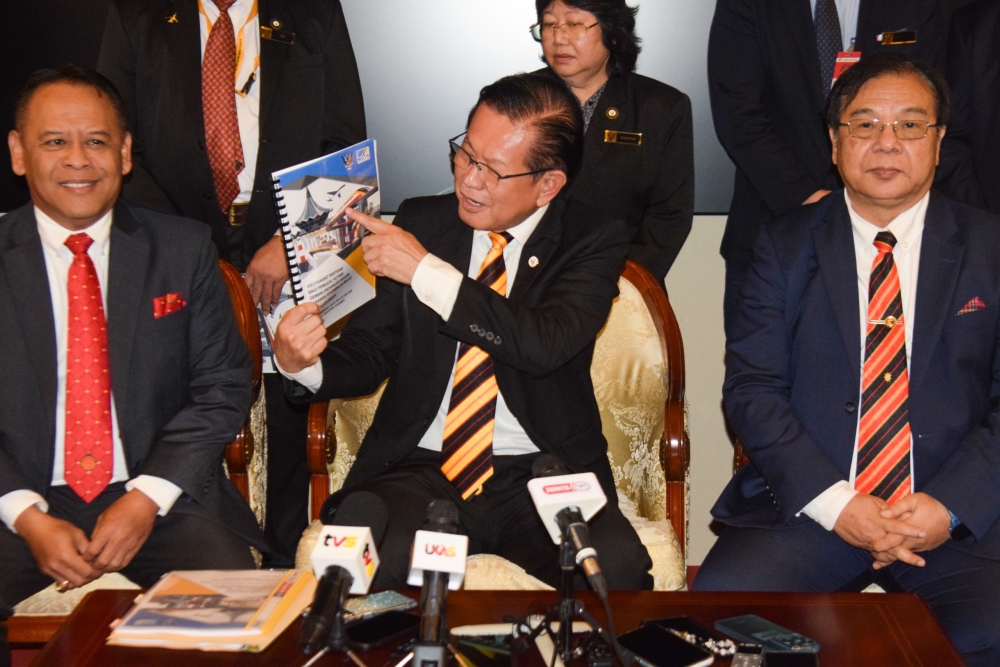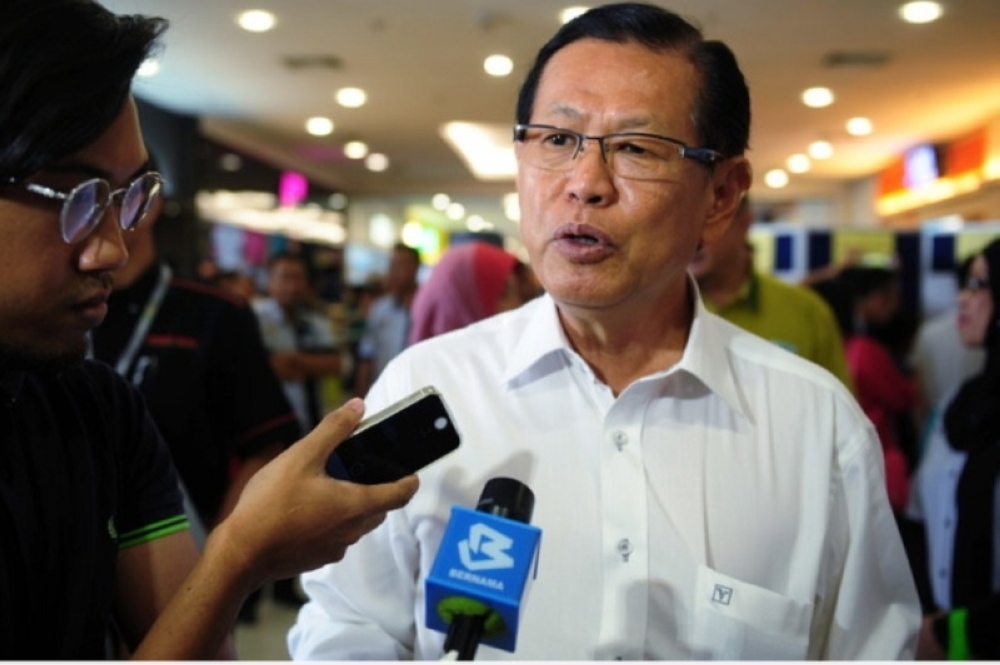KUALA LUMPUR, May 16 — The first phase of the Kuching Urban Transportation System (KUTS) project, which is being implemented and maintained by Sarawak Metro Sdn Bhd, a wholly owned subsidiary of Sarawak Economic Development Corporation (SEDC), will be operational by the end of 2027.
The KUTS project, which is under the purview of the Ministry of Transport Sarawak with an estimated budget of RM6 billion from the state government would minimise traffic congestion while spurring greater productivity and economic growth.
Sarawak Metro senior executive of promotion and public relation Muhammad Fahri Izzad Muhammad Yakup said Phase 1 of the project consists of three transit lines namely the Blue Line, Red Line and Green Line, which cover a total distance of 69.9 kilometres over 35 stations.
He said the first stage of the Blue Line which starts from Rembus to Stutong will be completed by the end of next year, followed by the second stage starting from Stutong to Hikmah Exchange and the Red Line (Kuching Sentral-Pending) in 2026.
“The Green Line (Pending-Damai Central) will be fully operational in 2027,” he told Bernama at the Rail Asia Solution 2024 conference here today.
In addition, Muhammad Fahri Izzad said the autonomous rapid transit (ART), the backbone of the KUTS project would run on a virtual track on the dedicated lanes and be empowered by hydrogen fuel cells with an operational speed of up to 70 kilometres per hour.
“The first five ART units would arrive this October, and by the time it is fully operational, we would have 38 ART units,” he said.
The Rail Asia Solution 2024 provides a perfect environment for discussions and networking opportunities for more than 60 railway operators in the Asian region.
Rail Asia Solution director Norman Johnston said the 23rd annual exhibition and conference over two and a half days is anticipated to attract 12,000 to 15,000 visitors.
“We bring in delegations of railway operators from other countries like Bangladesh, Indonesia, Singapore, Vietnam and the Philippines.
“They can meet their counterparts from another region and discuss the problems that they faced and help each other to find solutions,” he said. — Bernama






















